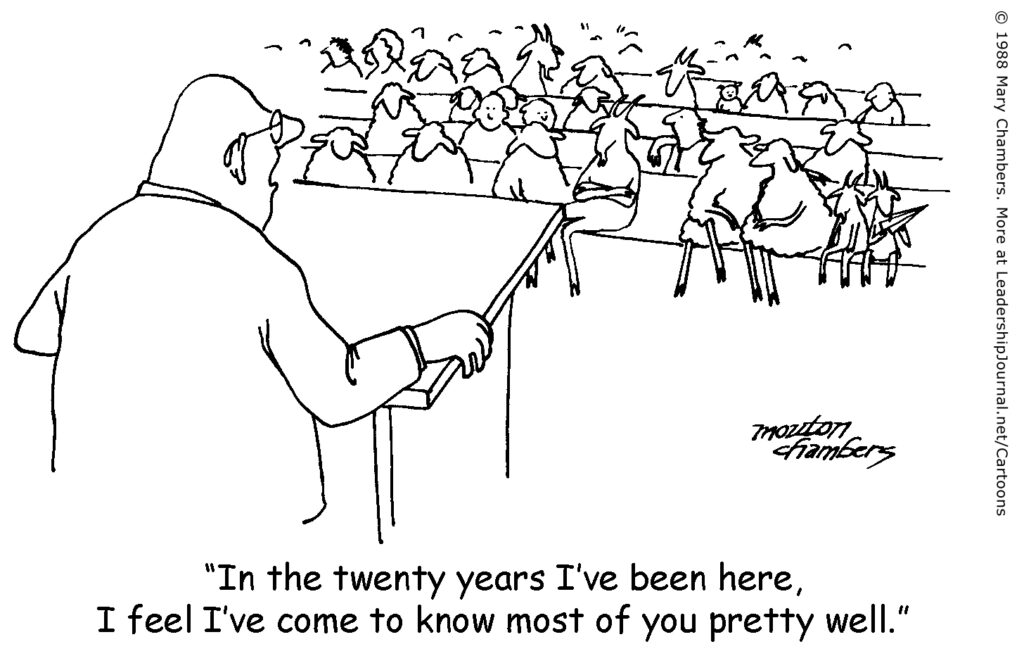
Philippians 1:12–18
12 I want you to know, brothers, that what has happened to me has really served to advance the gospel, 13 so that it has become known throughout the whole imperial guard and to all the rest that my imprisonment is for Christ. 14 And most of the brothers, having become confident in the Lord by my imprisonment, are much more bold to speak the word without fear. 15 Some indeed preach Christ from envy and rivalry, but others from good will. 16 The latter do it out of love, knowing that I am put here for the defense of the gospel. 17 The former proclaim Christ out of selfish ambition, not sincerely but thinking to afflict me in my imprisonment. 18 What then? Only that in every way, whether in pretense or in truth, Christ is proclaimed, and in that I rejoice.
A lot of inmates in prison have accomplished a lot of very impressive things over the years. Take, for instance, William Addis.
William Addis was an Englishman born somewhere around London in 1734. In 1770, Addis was imprisoned for causing a riot. While he was in prison, he washed his teeth with a rag, some soot, and some salt. This was the standard method throughout Europe and had been so for centuries. He watched a man using a broom to sweep the floor and decided that there could be a better way of cleaning teeth.
Addis saved a small animal bone from one of the meals that he was given. Then, he drilled small holes into one end of the bone. He obtained some pig bristles from his guards, tied them into little tufts, and stuck them through the holes with some glue. This was the original toothbrush invented in Europe.[1]
Or how about Jesse Hawley, a flour merchant from New York?
Eventually, in 1807, Hawley’s difficulties in securing reasonably priced transportation drove him in 1806 to debtors’ prison for twenty months. While in prison, writing under the name “Hercules”, he published fourteen essays on the idea of the canal from the Hudson River to Lake Erie; they appeared in the Genesee Messenger.
Considering his modest education and lack of formal training as an engineer or surveyor, Hawley’s writing was remarkable; he pulled together a wealth of information necessary to the project, provided detailed analysis of the problems to be solved, and wrote with great eloquence and foresight on the importance the canal would have to the state and to the nation. Though they were deemed the ravings of a madman by some, Hawley’s essays were proven to be immensely influential on the development of the canal.[2]
Or consider Robert Franklin Stroud, “The Bird Man of Alcatraz.” A dangerous man and a murderer, Stroud nonetheless made an amazing contribution to science and medical knowledge while in prison. His Wikipedia article states:
In 1920, while in solitary confinement at the federal penitentiary of Leavenworth, Stroud discovered a nest with three injured sparrows in the prison yard. He cared for them and within a few years had acquired a collection of about 300 canaries. He began extensive research into birds after being granted equipment by a prison-reforming warden. Stroud wrote Diseases of Canaries, which was smuggled out of Leavenworth and published in 1933, as well as a later edition (1943). He made important contributions to avian pathology, most notably a cure for the hemorrhagic septicemia family of diseases, gaining much respect and some level of sympathy among ornithologists and farmers.[3]
Amazing! How about one more example. A first-century Jew is thrown into prison because he will not stop preaching about Jesus. He is so passionate about Jesus that his presence and his preaching and the riots they sometimes cause are seen as positively dangerous by some of the authorities. While in prison, this first-century Jew wrote some letters that were so powerful they are still studied by groups of people all around the world who find in his letters the very words of God to mankind. That Jewish prisoner was named Paul and one of those letters was called “Philippians.” Paul’s imprisonment was not incidental to the writing of Philippians or to his life. In fact, it was quite important, and in verses 12 through 18 of this most remarkable letter, Paul talks about the role that his imprisonment played.





